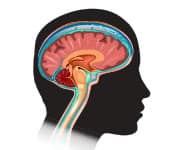Life Extension Magazine®
Dr. Roman Rozencwaig has devoted much of his medical career to the study and therapeutic use of melatonin.

In 1987, Dr. Rozencwaig, along with two other researchers, published an intriguing paper in which they proposed that the decline of melatonin in the body is a key factor in aging, and in the diseases of aging.
Ten years later, he co-authored The Melatonin and Aging Sourcebook, which became the “go-to” reference for melatonin information.
In this interview, Dr. Rozencwaig shares his vast experience about the benefits of melatonin and why taking oral melatonin can promote a healthier life.
LE: You first published papers on melatonin and aging over 30 years ago. How have your views changed since then?
Dr. Rozencwaig: Since our publications, thousands of research papers have been written about the beneficial effects of melatonin on various conditions, that support our original theory.
As more research has been carried out, I’m more convinced than ever that melatonin is a very important molecule with anti-aging and health-giving properties. Treatments using melatonin and related compounds are already in use for a range of conditions. I strongly believe that in the future, additional treatments using melatonin or similar substances that mimic its activity will become known for being beneficial for a variety of diseases, as well as for treating aging itself.

LE: You’ve proposed that aging is due to a melatonin deficiency. How does that work?
Dr. Rozencwaig: What happens in aging is that the pineal gland becomes calcified and atrophied, and the production of melatonin declines gradually. As a result, the circadian rhythm suffers, then the neuroendocrine system becomes disorganized, and gradually illnesses and diseases come into play. I believe that proper balance of melatonin and neurotransmitters is essential in maintaining our health and longevity.
A daily intake of melatonin at bedtime has many benefits for healthy aging and longevity.
LE: How does melatonin achieve all these beneficial effects?
Dr. Rozencwaig: Melatonin has a wide variety of effects on the body. Among many others, melatonin:
- Lowers nighttime body temperature, which produces anti-aging benefits.
- Is responsible for maintaining circadian rhythms, which synchronize the production and release of hypothalamic and pituitary factors and hormones. Aging is accompanied by the desynchronization of the entire neuroendocrine system, which leads to decline in health and increase of age-related disease.
- Protects the brain and may prevent neurological diseases such as Alzheimer's disease, Parkinson's disease, multiple sclerosis, autism, and many others.
- Improves immunity, which increases resistance against infections and cancer formation.
- Modulates both pro- and anti-inflammatory cytokines in different conditions.
LE: What effects does taking oral melatonin have?

Dr. Rozencwaig: Melatonin’s effects on sleep are well-known, and many people use it to help with sleep, and with jet lag. Getting enough sleep is very important for health and longevity.
Melatonin’s actions against the aging process are too numerous to mention in this interview. But among them are the following:
- Administration of melatonin regulates gene expression. This may assist in reversing some signs and symptoms of aging by working at the genetic level.
- Melatonin may help fight chronic, low-grade inflammation that happens with age (inflammaging).
- Melatonin may protect against viral, bacterial, and parasitic infections, probably by regulating immune response.
- Melatonin may protect against liver injury caused by alcohol, by regulating the activity of AMPK, an enzyme involved in cellular metabolism.tonin influences energy metabolism.
- Melatonin protects and restores mitochondrial function.
- Melatonin protects against osteoporosis by helping to regulate and balance bone formation and bone loss.
- Melatonin regulates sirtuins, proteins that play a role in cellular health.
- Melatonin stimulates a host of internal antioxidant enzymes, including superoxide dismutase (SOD) and glutathione peroxidase.
- Melatonin has been shown to have potential as a neuroprotective agent.
- Melatonin promotes apoptosis of cancer cells.
- Melatonin may play a role in oral health.
LE: One of the biggest concerns as we age is maintaining cognitive function. How is melatonin neuroprotective?

Dr. Rozencwaig: One study in mice showed that melatonin promoted and improved sleep by inhibiting specific neurons associated with wakefulness and alertness. Sleep, especially REM sleep, is important in memory consolidation in aging. During sleep, melatonin also activates a waste-clearance system that is needed for removal of toxic amyloid and tau protein deposits seen in the brain of people with Alzheimer’s disease.
In addition, melatonin facilitates brain plasticity (the ability to adapt and change), which underlies learning and memory consolidation.
As people age, cognitive abilities usually decline. There are several negative changes that occur in the brain as people age, and melatonin can counter them:
- There’s a decline in the brain’s white matter, which consists of myelinated (insulated) nerve fibers. This decline causes communication between neurons to slow down. Melatonin has been shown to improve myelination of nerve fibers.
- The brain is metabolically very active and produces large amounts of toxic free radicals over time. Melatonin is a strong antioxidant that is able to cross the blood-brain barrier and counter oxidative damage to the brain. Melatonin also increases production of enzymes that are needed to fight toxic reactive oxygen species in the brain and the neuroendocrine system.
- Chronic inflammation increases with age and is one of the causes of brain aging. Melatonin decreases this inflammation.
LE: There are some data showing that melatonin can protect stem cells and enhance tissue regeneration. What are your thoughts on this?
Dr. Rozencwaig: Melatonin has been shown to play an important role in regulating the functions of stem cells, such as promoting proliferation, migration, and differentiation.
Melatonin has been used for pre-treatment of stem cells, and this may represent a new, safe approach to improving their beneficial effects. Melatonin combined with stem cell transplantation displays promising application potential in neurodegenerative diseases, liver cirrhosis, wound healing, heart attack, osteoporosis, and more.
LE: Melatonin is found in our mitochondria. What is its function there?
Dr. Rozencwaig: Mitochondria are the powerhouses of the cells. They can also be a major source of free radicals. Melatonin also increases mitochondrial glutathione levels, leading to further protection against free radicals.
Loss of mitochondrial function is a known contributor to aging and predisposes the body to age-related diseases such as coronary artery disease, neurodegeneration, diabetes, obesity, and others. The number and function of mitochondria in our cells decline over time, which accounts for a large part of aging.
LE: How can melatonin be used therapeutically to stimulate immunity in older people?
Dr. Rozencwaig: I believe that using melatonin in the aging population can help reverse some aspects of immune senescence. This may help protect against viral, bacterial, and parasitic infections. And melatonin treatment in the older population may reduce the incidence of cancer and improve cancer treatments.
LE: Aside from strengthening immunity, there are reports that melatonin has direct antiviral properties. How can melatonin be used to fight against viruses?
Dr. Rozencwaig: Melatonin has been shown to prevent paralysis and death in mice.
There were infected with encephalomyocarditis virus. This is a highly pathogenic and aggressive virus. It causes encephalitis (brain inflammation) and myocarditis (inflammation of the heart muscle) in rodents. Melatonin was also shown to reduce viremia (when viruses enter the bloodstream) and significantly postpone the onset of disease and death in mice infected with the lethal Semliki Forest virus and others.
Respiratory syncytial virus (RSV) is a common respiratory virus. Mice infected with RSV showed elevation of oxidative stress associated with a decrease in glutathione and superoxide dismutase. Pre-treatment of the animals with melatonin resulted in marked reduction of acute lung oxidative injury, with restoration of glutathione and superoxide dismutase levels in the lungs. In RSV-infected mice, inhibition of oxidative stress was also associated with reduced production of pro-inflammatory cytokines, such as TNF-alpha.
These studies suggest that melatonin’s actions against viruses are due to a variety of functions, including the ability to regulate immune function and inhibit excessive inflammatory response. But there are also antiviral properties that melatonin may possess. Melatonin may have a protective effect against viral infections in cases of Ebola, dengue, encephalomyocarditis, Venezuelan equine encephalitis, rabbit hemorrhagic disease, and several others.
LE: What dosing do you recommend for general use as an anti-aging agent?
Dr. Rozencwaig: I believe people can begin taking melatonin safely for its anti-aging benefits starting at 35 to 45 years of age. For people who are generally in good health, I recommend a starting dose of 0.5 mg to 1 mg or perhaps 3 mg in the evening. The melatonin preparation should preferably be one that combines immediate- and extended-release forms, to be active for the entire sleep period. As people get older, I believe some can use higher doses of 3 mg to 5 mg per evening, but that depends on the individual’s health.
LE: What can someone expect if he or she begins to take oral melatonin?

Dr. Rozencwaig: One of the first things I notice in people who use melatonin is what I call a “melatonin glow.” This looks like a glow of health.
People who take melatonin report better health, more energy, and better sleep. They also appear to have fewer upper respiratory infections. I have many patients and friends in their 70s and early 80s who have been taking melatonin for 30 years or more, and they look younger than their age and most of them are healthy, without any significant age-related illnesses.
LE: You’ve said that melatonin levels decline with age. How do we determine how much melatonin to take to slow the aging process?
Dr. Rozencwaig: One can measure melatonin levels in specialized labs, but it has to be done properly. Most people generally take, on average, between 0.5 mg and 10 mg in the evening for anti-aging effects. We can also adjust the amounts of melatonin we take depending on the circumstances. For example, exposure to X-rays or certain toxins may be harmful, and you may want to increase melatonin intake for a day or two.
LE: How safe is melatonin?
Dr. Rozencwaig: Melatonin is safe and inexpensive, even when used for prolonged periods of time. I have been following many patients who have been taking melatonin for 20 to 30 years, safely and in good health.
If you have any questions on the scientific content of this article, please call a Life Extension® Wellness Specialist at 1-866-864-3027.
Roman Rozencwaig, MD, is a pioneer in research on melatonin and aging, practicing in Montreal, Canada. He is a member of the Life Extension® Medical Advisory Board.

